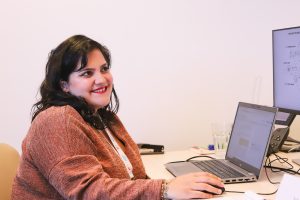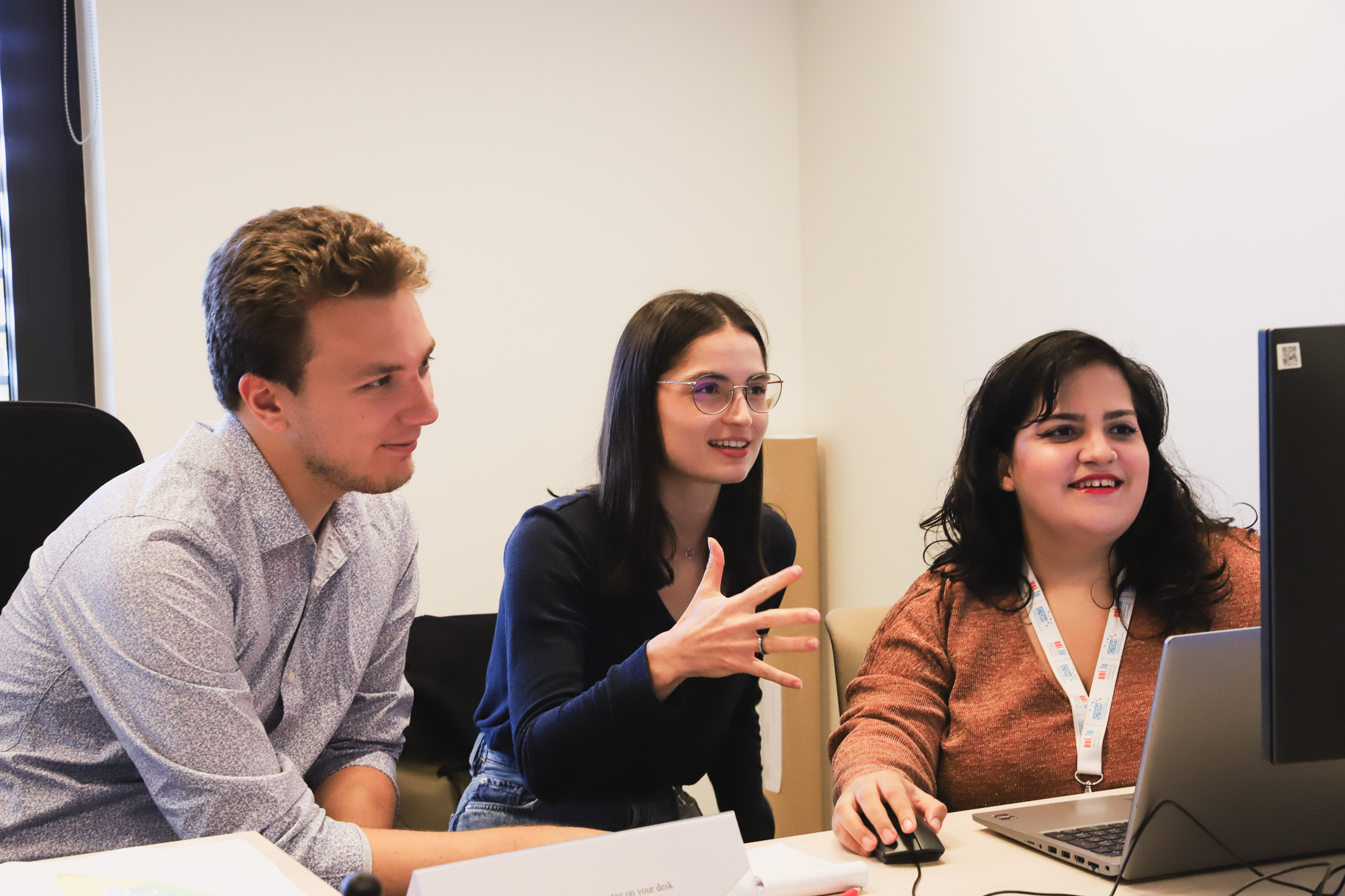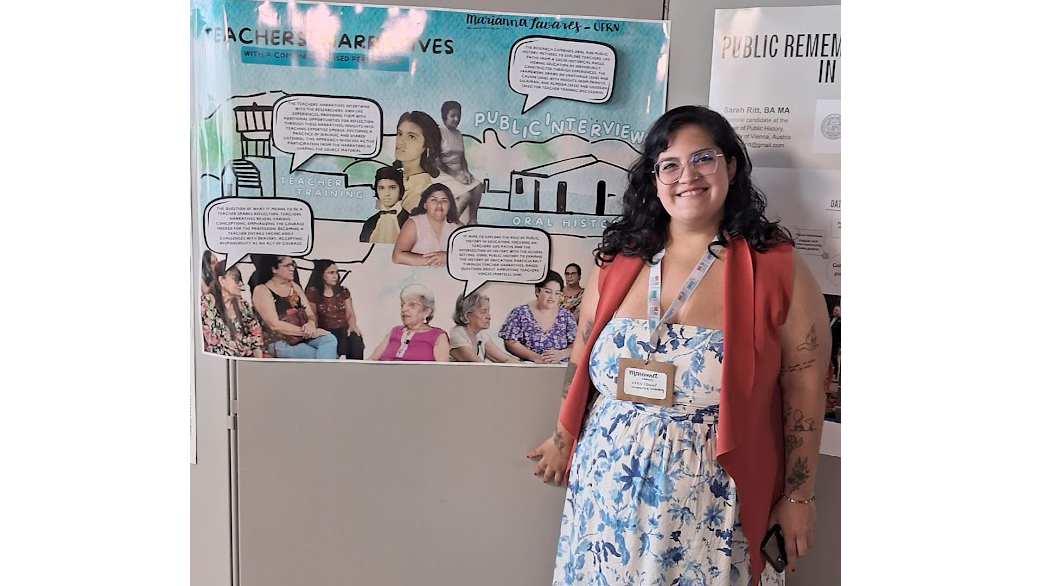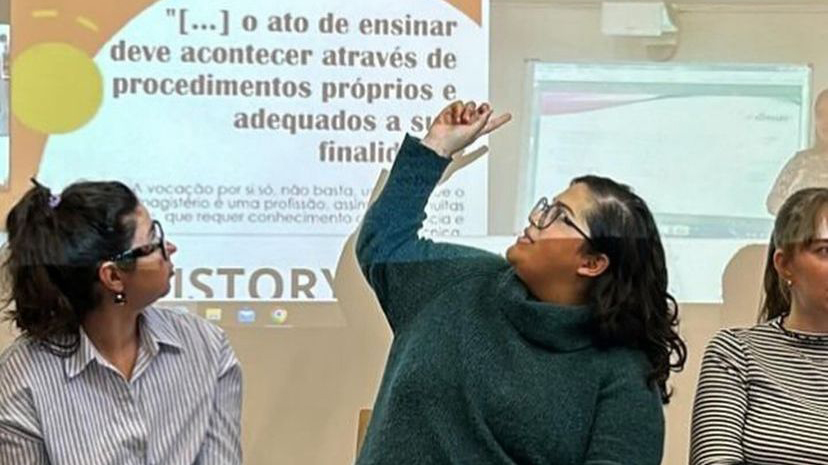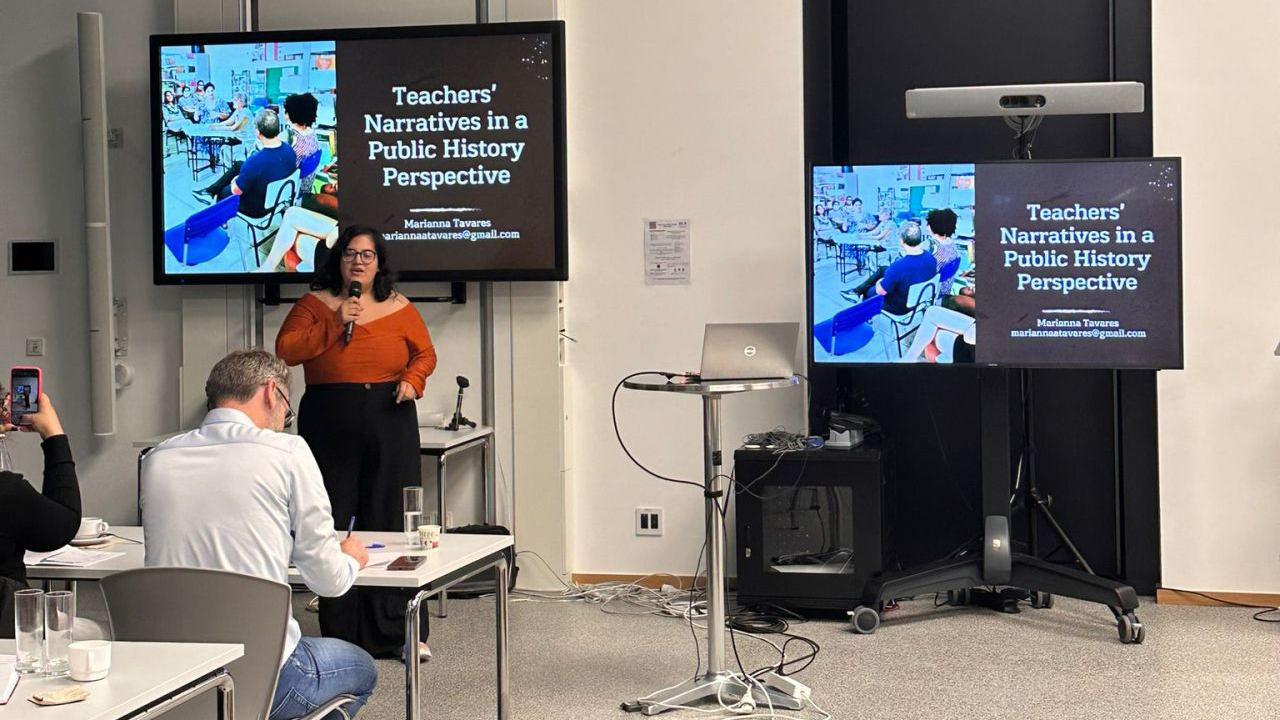A visiting researcher from Brazil, Marianna Tavares recently spent six months at the Luxembourg Centre for Contemporary and Digital History (C²DH), an interdisciplinary centre at the University of Luxembourg, to expand her knowledge in public history, with the aim of uncovering ways in which her research on the history of education and teacher training in her local community can have an even wider impact.
In northeastern Brazil lies the state of Rio Grande do Norte, known for its natural beauty, speckled with lagoons and picturesque beaches. Its capital, Natal, is home to the Federal University of Rio Grande do Norte, where Marianna Tavares is a PhD student, researching teaching narratives based on the life history of teachers from a neighbourhood in the state called Cidade da Esperança.
This town offers a unique, historical context for Tavares’ research. But it also has a special personal history for her: not only was she born and raised there, but she—and her grandmothers—have taught here themselves. Such a personal connection has afforded Tavares a unique opportunity to exchange with both current and retired teachers.
Tavares’ own career includes eight years as a primary school teacher. For three years, she also served as a pedagogical coordinator. During her master’s degree programme in education, Tavares learned more about Brazil’s higher education policies, analysing how they were constructed. Although Brazil universities are free of charge, the higher education policies tend to take shape by offering student aid in the form of housing, grocery expenses, even prescription glasses.
As Tavares notes, such assistance is provided on the federal level, but each university has the autonomy to organise this assistance. And every effort can help “keep these students in the universities so they don’t want to leave and, therefore, can search for a better life for themselves,” she adds.
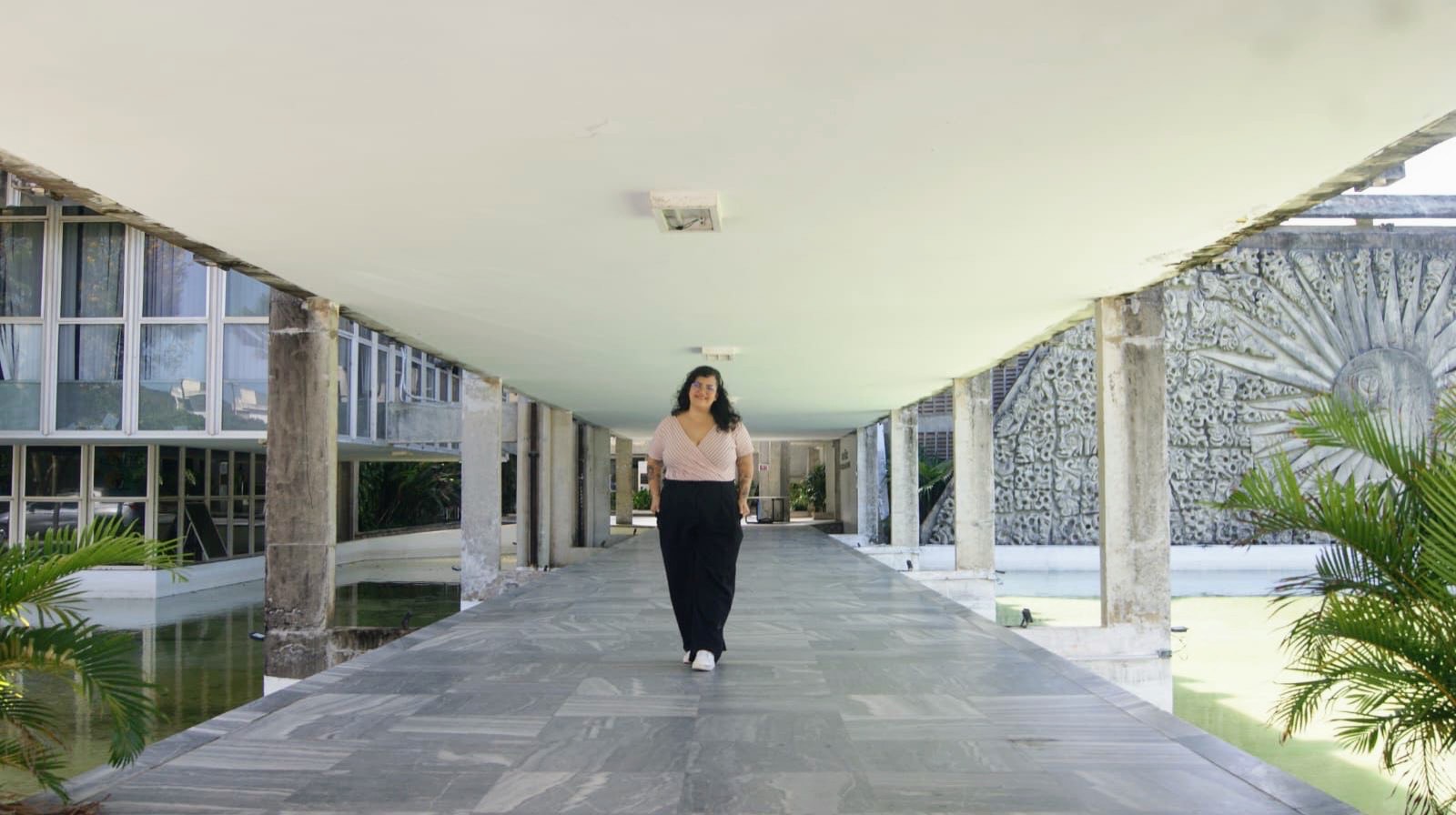
Unique backdrop
When deciding to pursue her PhD in the history of education, Tavares wanted to focus on something close to home. She began conducting interviews with teachers from the Cidade da Esperança neighbourhood, learning more about their career trajectories over 30 years. She selected the period from 1966 to 1996, starting with the year in which the town was founded by the Brazilian government in a bid to provide more affordable housing due to pressures related to internal migration from rural to more urban areas, like Natal.
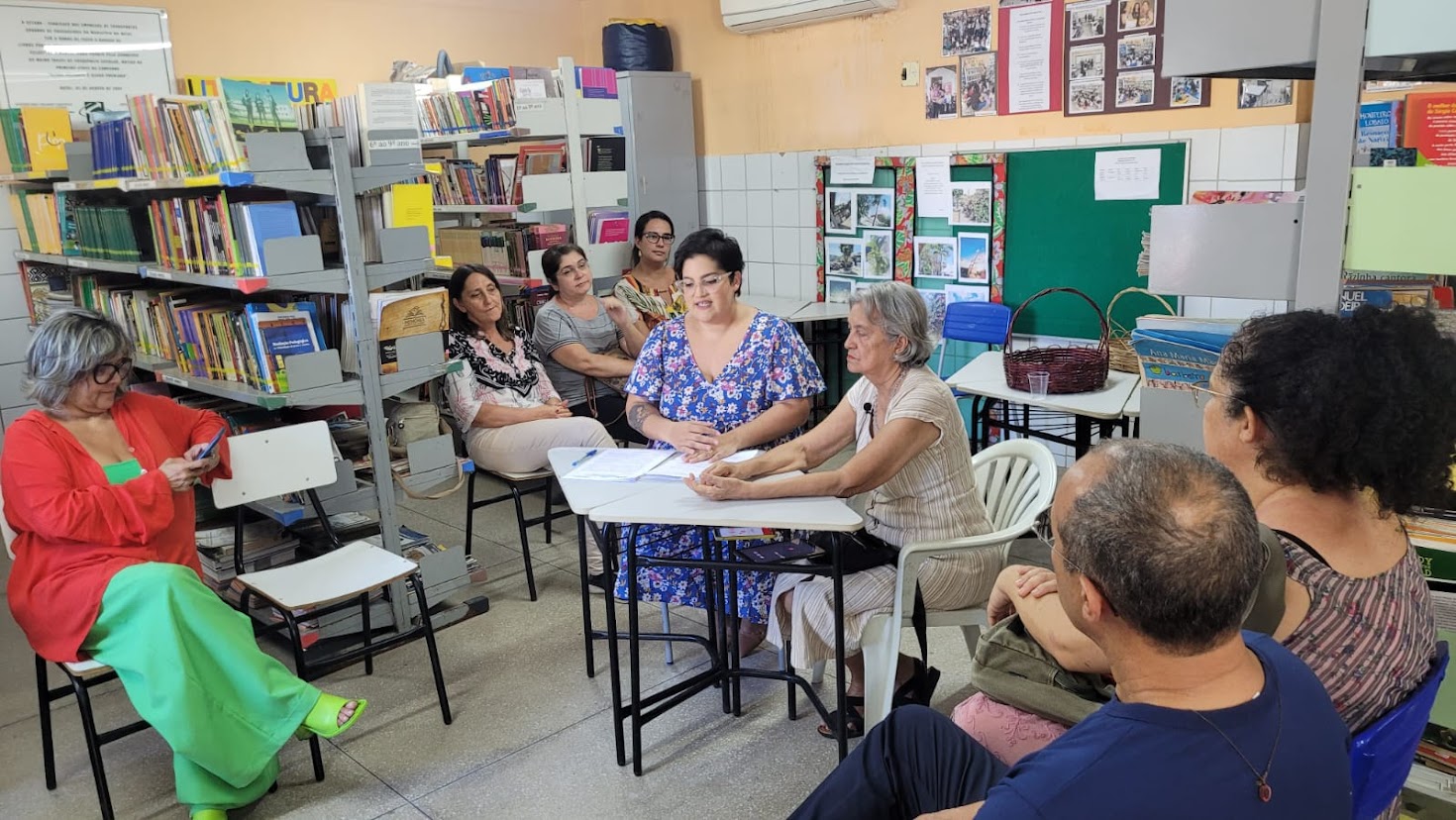
But the backdrop is unique for other reasons as well. Not only had Brazil entered a 21-year-long dictatorship starting in April 1964, but this neighbourhood was also influenced by a U.S. programme called Alliance for Progress. Launched by President John F. Kennedy in 1961, the initiative sought to establish economic ties between the U.S. and Latin America; one of its pillars was dedicated to education and literacy.
The teachers Tavares interviewed were the first to teach in this neighbourhood. “We had, in an educational context, a huge problem with illiteracy, with 40% of the Brazilian population unable to read or write,” Tavares explains. The Alliance for Progress created additional pressure, on one hand, but also training and social assistance on the other. “It’s a very particular context in terms of how teachers influence the culture of a neighbourhood and vice-versa, how the neighbourhood also moulds who they are as teachers,” Tavares notes.
“Building together”
The public history aspect of her work has been particularly important. As she conducted interviews in the same schools where teachers had previously taught, there was engagement with current teachers. “It was interesting because they came up with questions connected to their jobs today while also acknowledging what those teachers did in the past,” she says.
In fact, some current teachers—those working in math, history or science, for instance—vocalised their concerns about the post-pandemic context, which has caused new literacy issues with students, particularly in elementary schools. “They asked [the retired teachers] how they dealt with it… in that moment, there was a connection between the past and present, acknowledging these retired teachers as professionals who have knowledge about something specific, and that it’s important to value the work the teacher does.”
Tavares also tried immersing herself into the life of schools, i.e., by attending student events—a methodology focused on “building together”.
Tavares was interested in the topic of public history, and her research led her to written works by Thomas Cauvin, Associate Professor and Head of the ‘Public History and Outreach’ Research Group at the C²DH. Later, at his invitation, she spent 10 months at the C²DH, where she was able to explore different ways to showcase her research.
From the outset, she says she was positively surprised how welcomed she felt by her colleagues, be that in the office, where the exchanged ideas, or outside for informal gatherings. “In Brazil, PhD researchers work from home or go to a library university, which is great, but it’s not the same thing as having an office space,” Tavares says. “This has made me realise some differences, things we must fight for in my country.”
As a result of her time at the C²DH, she says she’s buzzing with ideas on ways to expand communication on her research. She has already started, for instance, creating drawings using xylography, a technique from her region in Brazil, to transform these oral narratives into a new medium. She has also able to attend international conferences and interact with others in her field, which have sparked several ideas about how she’ll be able to share her work with a broader public in innovative ways.
Upon her return to Brazil, she hopes to share what she has learned through lectures, a workshop, even helping her professor with a new public history course in 2025. She is also working on a podcast around the oral narratives, which she hopes will be a more approachable way to learn about the history of teaching and is even considering making a children’s book on her research… all of which could help inspire the next generation.
Introducing C²PhD: A New Podcast Series from the C²DH that brings listeners into the journeys, challenges, and insights of our doctoral researchers at the C²DH! Our first episode features Marianna Tavares:
